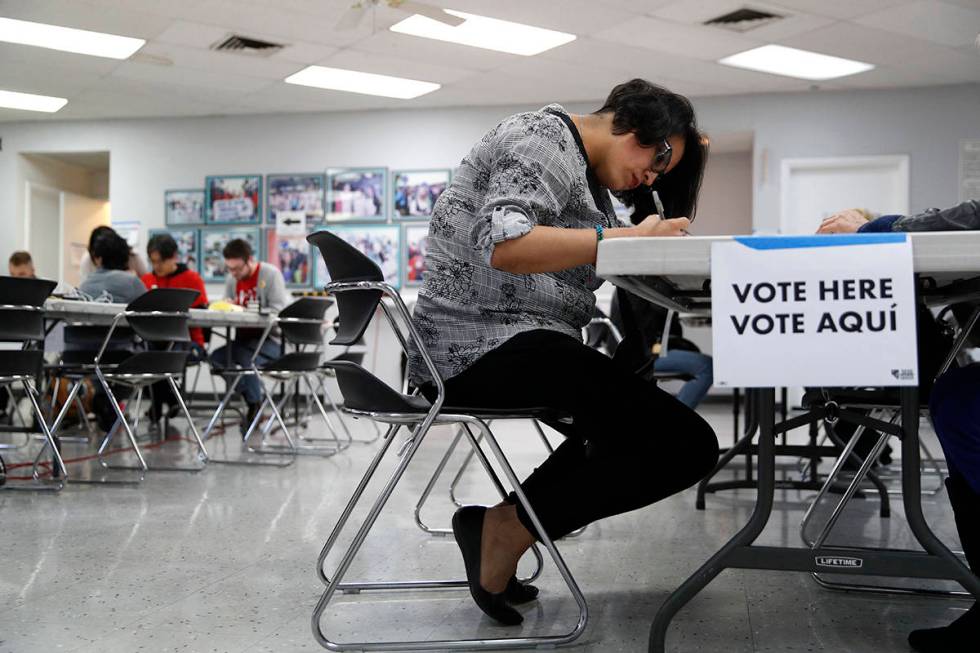Judge promises quick ruling in challenge to mail-voting primary

RENO — A federal judge said Wednesday she would rule by the end of the week on a challenge to Nevada’s plan for conducting its June 9 primary almost exclusively by mail to cut down on spreading the coronavirus.
Lawyers for state and national Democratic interests and True the Vote, a conservative voting rights group, are challenging the plan from opposing angles: Democrats want more in-person polling places and other protections for ensuring voting opportunities. The conservative group is claiming an all-mail procedure presents a greater potential for ballot fraud.
The parties appeared by teleconference before U.S. District Judge Miranda Du on Wednesday for more than 90 minutes on a motion for a preliminary injunction.
“The fact that we have this hearing by phone because the court is limiting in-person appearances does demonstrate the unusual circumstance of our time,” Du said as she opened the hearing. “So I don’t need counsel to explain to me how COVID-19 has affected our communities. I’m well aware of that.”
Secretary of State Barbara Cegavske, a Republican, announced the emergency change March 24. The plan calls for active registered voters to be mailed absentee ballots, returning them by postage-paid envelope or by dropping them off in person at a designated county location.
At the hearing, James Bopp Jr., the lawyer for True the Vote, argued that Cegavske did not have the authority to order the change under existing statute.
“We believe it’s not up to the defendant (Cegavske) or the intervenors or the even the court to decide whether or not that is warranted,” Bopp said.
Deputy Solicitor General Greg Zunino, representing Cegavske’s office, said the plaintiffs had not shown their voting rights were affected.
“They can’t explain why their votes will be diluted by this,” he said.
Most of the hearing focused on the conservative group’s claims that mail balloting lacked sufficient safeguard to deter fraud, and that if illegal votes were cast, legitimate voters would see their choices diluted.
Democrats have argued that security safeguards — including a requirement that voters sign the ballot envelope and that election workers match that signature to one on file — are too strict and could lead to legitimate votes being discarded. They’ve generally supported increased mail voting, however, arguing that without it “many voters will be forced to choose between risking their health to vote in person and participating in the June primary.”
Contact Capital Bureau reporter Bill Dentzer at bdentzer@reviewjournal.com. Follow @DentzerNews on Twitter.